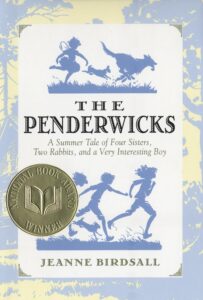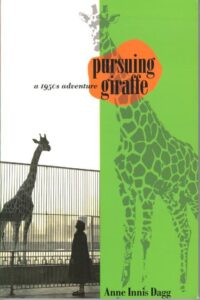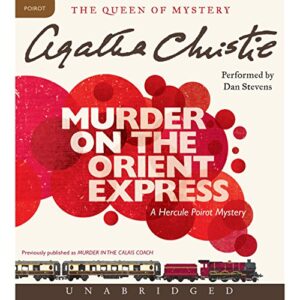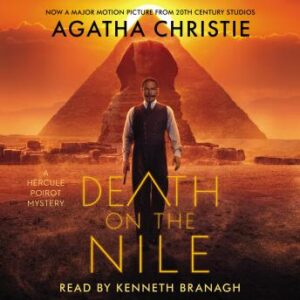January 6, 2025
SPACE

Our Christmas tree was wonderful, lush and redolent until (almost) the very end, and once it was gone, we had so much space it was almost like getting a new room, and so we tidied it. Too many books, as always, so I got rid of a lot of them, and then freed up an entire shelf by relocating my encyclopedia set (circa 1987, Berlin Wall forever) to a space on top of another bookcase that had previously been occupied by crap and clutter. Which means SPACE, my books with room to breathe, my personal library with room to grow. And speaking of SPACE, here is ORBITAL, by Samantha Harvey, which (I will confess!) I was not much looking forward to reading because I’d read her previous novel DEAR THIEF—pitched as a fabulous novel that not enough people were reading, a mark of the state of publishing together—and I didn’t like it at all, perhaps because I don’t actually know the song “Famous Blue Raincoat” on which the novel is cleverly based. So when ORBITAL won the Booker Prize, I didn’t rush out and buy it, but requested it from the library instead, finally sitting down to read it over the holidays, and IT WAS SO GOOD. Yes, it’s me, as ever, with the least hot takes, but I adored this book, which is set on the international space station over the course of a single earth-day, and it really was a love song to our planet and to people and the possibilities when we choose to be our better selves. The image that has stuck on my mind is the floating astronauts at the window watching the earth down below, Harvey giving us the whiteness on the bottom of their very clean socks, which is a perspective I’d never even started to imagine. When I was finished reading, I pushed it onto my teen, who read it in an evening, and then her dad read it too, and we had to buy our own copy because we all loved it so much—and with the relocated encyclopedia there is even room to shelf it now. And I barely know about controversy the book was embroiled in either (it was targeted with bad reviews on Goodreads for supposedly glorifying Russia [um, it definitely does not]) because I’ve spent very little time on social media in the past month, which I’m not sorry about at all, a choice that has freed up mental SPACE for me to read and think and be, and I’m going to carry all that with me into a hopefully spacious new year.
September 3, 2024
The Summer Was An Envelope

The summer was an envelope
packed with photographs
ticket stubs
and ice cream cone wrappers
that say JOY
Waterlogged and gritty
with beach sparkle
smells like sunscreen
Moments to memories
A sacred container
Most precious souvenir
August 16, 2024
Good Time

Am I having a good time because the books are so good, or are the books so good because I’m having a good time?
The proverbial question, one that seems more pressing when I’m in a funk and the books are terrible, but it’s worth asking too when I just keep opening one fantastic novel after another. And it’s true that our summer has been quite glorious, last week ending a string of four delightful getaways around Ontario, each one with reading as sparkling as the lakes were. A month ago, I was raving to you about Catherine Newman’s Sandwich, a read that felt like the springboard to my summer, and now I’m back with another pick that read its way straight into my heart, so much so that I’m imploring everybody around me to read it, read it, read it. (So far, my husband and daughter have done so, and loved it too, along with Barack Obama, so I’m currently working on a 100% approval rating.)
I read Liz Moore’s novel God of the Woods during a camping trip to Pinery Provincial Park on Lake Huron, and I thought I knew what I was getting into. I’ve read books about missing girls before, you see, and I’ve read books set at summer camps, and I know how such a setting can be both creepy AND perfect for exploring class divides, and this is also a book about a great house belonging to a wealthy family—naturally the house has a name, and that name is, absurdly, “Self-Reliance.” I’ve read detective fiction before too—the detective working the case of the missing Barbara Van Laar in this book is a young woman eager to prove herself, whose talents are undermined by her colleagues. This novel, I supposed, would be just a book jam-packed with all my favourite literary elements. And it is, it really is, but what makes it so exceptional is what Moore does with those elements, how she manages to take these familiar devices and tell a story that’s suprising and subversive, like nothing I’ve ever encountered before. How the dripping blood on the cover is in fact dripping paint, is the kind of thing I’m talking about. A thumb to the patriarchy, wonderfully queered, and so fiercely feminist, plus it goes down a treat. It’s so fresh, and so interesting. (Read it, read it, read it.)
(This post was a Free Post on my Substack this week! Sign up to receive Pickle Me This directly to your inbox.)
August 12, 2024
The Holiday Reading Round-Up

If appears like I’ve spent the last six weeks mostly on vacation, YOU WOULD BE CORRECT, and what a trip it’s been, so many good books. And some of the books I read last week on our cottage holiday in Haliburton will be familiar if you read my July Substack Essay, “How to Build a Summer Reading List,” beginning with Family Pictures, by Sue Miller, who has only been a summer holiday reading mainstay for me only since 2020, but it feels like since forever. Like so many of her books, this one is a complicated family saga spanning decades, about a marriage that becomes derailed with the arrival of a son who is “different,” Randall, the third of six kids, eventually diagnosed with autism. The problem with this book is that Randall is a device instead of a character, the book and its characters pre-supposing any notion of Randall could be a person with his own consciousness, let alone narrative perspective. But it’s an interesting treatment of how autism was considered in the 1950s, and the ways in which mother were to blame for their children’s diagnoses. Even without Randall, the marriage in this story would have been a complicated one, however, and this nuanced treatment of family dynamics (especially from the point of view of their adult daughter who eventually comes to view her parents, and all their mistakes, with some sympathy) is what makes the story so interesting.
My next pick was Dominick Dunne’s A Season in Purgatory, a totally battered copy I bought for three dollars at The World’s Smallest Bookstore near Kinmount on the way to our cottage. I can’t remember when Dominick Dunne came into my life, but I think it was via his Vanity Fair columns, which then led to me obsessively reading his fun and trashy novels (which, like Sue Miller, I remember lying around our house in paperback during my childhood). I’ve not read him for years though, but I’m on wait-list to receive his son’s memoir The Friday Afternoon Club, so thought a reread would be meaningful in the meantime, and I loved it just as much as I ever did. What is most remarkable is that I have been totally oblivious and only learned a few weeks ago (while listening to Griffin Dunne on a podcast) that Dominick Dunne was gay, and I really can’t believe I didn’t get it, because in the book (whose narrator is a fictionalized version of Dunne) IT’S NOT EXACTLY SUBTLE, but I also can believe I didn’t get it, because I spent most of my life in the most heteronormative bubble….
Next I reread The Joy Luck Club, which came up for me when I published my own book about women’s friendships and someone mentioned it to me, and I realized I hadn’t read it since everybody was reading it in the early 1990s. When I was, of course, a literal child, and I see now how the most interesting parts of the story would have gone over my head at that point. There is a line from Elisa Gabbert’s new book about some books reading up best when you’re too young to really understand them—her example was The Catcher in the Rye, and I concur—but The Joy Luck Club was not one of them, a story of mothers and daughters, and women’s lives, and very complicated friendships. Rereading was a lesson in how much of my earlier reading life must have gone straight over my head.
Next up was A Kind of Intimacy, by Jenn Ashworth, an English writer whose depictions of Lancashire and the northwest have been really important to me. This is the fifth book by her that I’ve read, her debut novel, and it was as easy to read and absolutely uncomfortable (seemingly a contradiction) as all her novels are. This one is set in my husband’s hometown of Fleetwood, Lancashire, which gets described as “dismal,” which it can be, particularly if you’re any of the characters in this book. Annie is an unreliable narrator hoping to put the trauma and violence in her past behind her and make a brand new start, but she becomes strangely fixated on her new next door neighbour and things go awry in ways that will even surprise the readers who’ve seen her coming.
Next was another reread, Brother of the More Famous Jack, the 1982 award-winning debut novel by Barbara Trapido, which was like nothing I’ve ever read before, and so when I read it for the first time, I was mostly baffled. Trapido’s novels are ribald and theatrical, not exactly shaped like English novels at all, and this coming-of-age story unfolds over more than a decade, as daughter of a grocer Katherine becomes enveloped into the eccentric Goldman family. Absolutely nothing is above reproach in this novel, where characters joke about rape and the Holocaust, and the death of a baby and stay in a mental hospital are passed in a few paragraphs (albeit frightfully felt). Politically correct, this novel is not, but neither is it boring or derivative. Having read three other of Trapido’s works, I was finally in a place to properly appreciate it.
And Marian Keyes’ Again, Rachel, was a fairly fitting book to read after it, another ribald story that touches on infant loss, and oh my goodness, Keyes is brilliant. Such a sparkling sense of humour, but the books are containers for such difficult and weighty subjects, and she does such justice to them. There were so many threads in this novel that it seemed impossible she’d work them just right, but she did. These books are so wonderful, and complicated, full of nuance, and worthy of serious attention. They’ve got heft, but they’re also fun to read, which is the only remotely fluffy thing about them.
And then I picked up Commencement, by J. Courtney Sullivan, which touches on the same lack of regard for novels about women that I alluded to in the previous paragraph, except that this is a debut novel and Sullivan is trying to prove herself, wanting to be taken seriously, while Keyes has no fucks to give nineteen novels in. I’d read Sullivan’s novel Maine last year, a summery pick, and enjoyed this too, their contemporary feel but gesture toward a saga.
And finally, Iona Iverson’s Rules for Commuting, by Claire Pooley, which was our audiobook for the drive, and we all loved it so much. It can be challenging to find a pick to suit readers from ages ranging from 11 to 45, and it’s mostly Agatha Christie books that get us through, but I was desperate for a book that wasn’t an Agatha Christie, so decided to take a chance on this one. Which, hilariously, begins with an Agatha Christie epigraph and some fascinating allusions to Murder on the Orient Express, which has been one of our faves. This novel is very different, of course, but we adored it, so utterly engaging, so laugh out loud funny, and I don’t think I’ve ever enjoyed an audiobook more. Warmhearted and a little edgy at once—we were all delighted.
And one more, because I can’t resist. We just passed the four year anniversary of Taylor Swift’s Folklore, an album that felt like such a gift during that very hard year and its cruel summer, and so we were listening again because it’s such a midsummer album, and also the song “August,” which has been in my head since the calendar turned. Swift is one of my favourite storytellers, the Bruce Springsteen comparison totally apt. Lines like, “You heard the rumour from Inez, you can’t believe a word she says—most times, but this time it was true.” Or, “Back when we were still changing for the better, when wanting was enough, to believe it was enough. To live for the hope of it all. Cancelled plans just in case you call.” Songs like “Mirrorball” and “Epiphany”—so much feeling. So many stories. We were listening again, when we weren’t listening to Iona Iverson, and I just felt so glad to live in a world where there is such thing as Taylor Swift.
August 1, 2024
SHARK HEART, by Emily Habeck

One of my most frequent experiences of nostalgia is biblio-nostalgia, the longing to be returned to a particular book in a time and place that felt especially sublime. The August I read MALIBU RISING at a rented cottage and could not put it down, the long weekend two years ago when I read Jennifer Close’s MARRYING THE KETCHUPS at the beach, the particular camp chair I was slumped in years ago as I was hastily turning the pages of Amber Dawn’s SODOM ROAD EXIT (lesbians, vampires and abandoned roller coasters on the shores of Lake Erie, oh my!). And yes, while it’s only been a month, I’m still not over having read Shelby Van Pelt’s REMARKABLY BRIGHT CREATURES on our camping trip over the Canada Day long weekend and—especially as we departed on another camping trip last Saturday—I felt the desire to have it happen all over again, the perfect book in the perfect place and time. But this is the kind of experience it’s impossible to manufacture; it either happens or it doesn’t.
But it did, because en-route to our campsite on the banks of Lake Huron, we stopped for in the town of St. Marys, precisely because it was home to a bookshop I’d never visited before, Betty’s Bookshelf, and the town turned out to be wonderful, the bookshop itself just absolutely perfect, stocked with excellent picks (including my own novel!), and every single member of my family left with a title we’d never heard of before.
Which for me was SHARK HEART, by Emily Habeck, enthusiastically recommended by bookseller Wren, a book that MIGHT have been a hard-sell considering its premise (this is a novel about a newlywed couple whose plans go awry when the male partner is diagnosed with a rare disease in which he mutates into a great white shark, yup, really), but Wren promised me that this was a novel about love, and grief and life, and the mutation is a metaphor of sorts, and then I read the back and saw a blurb by none other than Shelby Van Pelt, and decided that this might be the closest I’d come to reading REMARKABLY BRIGHT CREATURES for the first time all over again.
I will say that this is a very different kind of book, far more strange and lyrical, if similarly preoccupied by the desires of sea creatures and blurry lines between us and them, but it similarly hit just perfectly, and as I devoured it (I sound like a great white shark now; it was less bloody than that, I promise). Like Ann Patchett’s TOM LAKE, it’s also about a production of OUR TOWN, which I’ve now even read. This is a novel about the paths in life that take us places where our loved ones can’t follow, about how to face the unimaginable, about how some people are unlucky over and over, terrible patterns repeating, the unfairness of fate, the beauty that’s possible anyway.
I loved it. You should read it. Thank you to Betty’s Bookshelf’s Wren.
July 24, 2024
Summer Reading

Earlier this month I wrote a substack post (available to all readers) about Catherine Newman’s SANDWICH as an ideal beach read. You can read it here!
Paid subscribers can read my July essay, “How to Build a Summer Reading List,” which went up yesterday, and you can read it here. (Thank you to new subscribers! It means everything.)
And finally, there’s a Canadian Goodreads giveaway of my novel ASKING FOR A FRIEND, which makes for an ideal summer read, I must say. Enter before July 29 for your chance to win!
July 3, 2024
Camping With Bright Creatures

My family worked really hard to buy me a book for my birthday that I would like, but hadn’t directly asked for. This process required looking up titles in line with my interests, and then examining our bookshelves to ensure I didn’t own it already, and then carefully studying my reading log to ensure I hadn’t read it in the last two years. A chancy endeavour, this was, but they were fairly confident. “Either you haven’t read it,” my husband told me, “or you just hated it so much that you eliminated any and all evidence of ever having come into contact with it.”
Fortunately, it was the former, but then everybody was quite nervous to find out if I would actually ENJOY the book, REMARKABLY BRIGHT CREATURES, by Shelby Van Pelt, a book that got lots of hype when it came out, but more on the periphery of my experience. This weekend, on our camping trip, I finally dove in….and I loved it so much. The kind of rich, absorbing reading experience I hope for when I’m on holiday. (My daughter said she was pretty sure I would like it because it sounded a bit like @amlaujo’s PEBBLE AND DOVE.)
And can I just take a moment to note how much the poor books we bring on camping trips have to go through? Look at that crumpled cover, not to mention bugs smushed between pages, the parts that end up waterlogged, the spills and dirt, and sand between the pages? Books on camping trips are some of the most hardworking, bedraggled books in the world.
Which is also to say that they are LOVED, and become irrevocable parts of the holiday memory, memories of reading as vivid and essential as those of the gorgeous sunsets, the indelible smell of campfire smoke, the sound of birdsong (very) early in the morning.
April 18, 2024
Book By Book: An English Journey

I wrote about our trip to England via the books I read on our travels, and you can read it on my substack. It was really long and kudos to anyone (everyone?) who reads all the way through. Check it out here.
April 11, 2024
Back Again!

In case you missed me, I was busy buying books all over Northwest England, and having a grand time while doing it. Full report to come in my newsletter on Monday—make sure you’re on the list!
November 29, 2023
7 Books and 7 Drives
Gary Barwin, in a typical act of originality, has created a wonderful list at 49thShelf called “Six Books on Six Trails,” matching his audiobook listening to the places where he walked with those books in his years. He writes, “There’s an intimate pleasure in listening to books as one walks. The voice speaks only to you. What it is telling you colours your surroundings. It’s a narrative soundtrack, mood music in words. Certain places become associated with certain events in a story or certain ideas discussed in a podcast. And these may pile up to become sedimentary auditory formations… It’s a literary trail map, a walking footnote.”
Which reminded me of the bend of highway that will forever remind me of poor Anne Innis Dagg trapped with a predatory man in an isolated cabin facing a choice between sharing a bed with him or sleeping on the floor with spiders (or something—the specifics have escaped me) even though the highway is in the middle of southern Ontario and the cabin was somewhere in Africa, but the highway just happened to be the place where I was listening to the book.
I don’t listen to audiobooks very often, but when I do it’s in the car with my family on any journey that will take more than a couple of hours, and these books are always a highlight of our trips, becoming intricately connected with the experience, however incongruous the place and subject matter.
*
The Penderwicks series, by Jeanne Birdsall
Highway 11 north of Gravenhurst
We’d listened to audiobooks before, but The Penderwicks series were the first books that really “took” for us, because both our children were old enough to be engaged, and because the stories were interesting and nuanced enough to engage their parents as well. I know we read the first in the series from a book borrowed from the library, but I think all the rest were on audio book. We listened to these books on our summer trips to Muskoka and I remember the dips in the road when Mr. Penderwick was referring to his girlfriend Marianne Dashwood and how I was pretty sure I was onto him. The very last book in the series has little Batty Penderwick all grown up, and I recall finishing it just as we came off Highway 400 to join the traffic of the 401—for both the holiday and the series, we still wanted more.
*
The Watsons Go to Birmingham, by Christopher Paul Curtis
Highway 400 through Barrie, ON
This book was from the same route on the map but during a more recent summer, and I recall driving up through Barrie and listening to the part where (I think it was) the big brother gets his tongue stuck to the wing mirror on the family car in the dead of winter. This is very much a book about the automobile, the Watsons coming from Detroit, as they do, and their huge family car being pivotal to the plot as they family makes its way south to Alabama in 1963. Their father rigs up a system where they can have an actual record player on the dashboard! On the way back a week later, we were driving through Barrie again when we got to the part about the 16th Street Baptist Church bombing, and this novel brought that story to life for me in a way I’d never experienced it before.
*
Pursuing Giraffe, by Anne Innis Dagg
Highway 35 through Norland, ON
We listened to this memoir on our very first trip to Big Hawk Lake, a new journey for us, and that feeling of not knowing where we were going with the story in our ears has woven the two together, so much so that every time we’ve driven by the end of the 404 ever since, I’ve recalled the specific point where Anne Innis Dagg’s boyfriend was being such an absolute jerk as she left him to fulfill her dreams of studying giraffes in the wild during the 1950s. (Spoiler alert: Reader, she married him!) And see my aforementioned point about the predator as we were making our way through Norland, ON, on Highway 35, not a giraffe in sight.
*
Murder on the Orient Express, by Agatha Christie
Limberlost Road, near Huntsville, ON
I can’t remember who recommended Agatha Christie to us for family audiobooks, but we’re forever indebted to them. We borrowed this one from the library and it was not the Kenneth Branagh version, but we loved it all the same, and only got part way through on the journey up to the cottage and throughout the week kept thinking about reasons to jump back in the car and take a trip to town—just so we could hear the next part.
*
Death on the Nile, by Agatha Christie
Highway 7, near St. Mary’s, ON
We listened to most of Death on the Nile this summer on our journey to and from Muskoka, but had some still left over for our camping trip to Pinery Provincial Park a week later (which is a really long trip). When I think of this novel set on a cruise ship in Egypt and all its nefarious characters, I think of the rural roads of Perth county, green fields and tobacco farms, no doubt just as Agatha Christie planned.
*
The Infamous DNF
Highway 35 just south of Dorset, ON
The trouble with the Agathas is that now we don’t want to listen to anything else, but all Agatha all the time gets a little samesy. So we tried a different book for our getaway in August, and perhaps it might have been fitting if our children were younger and we were not all so primed for stories stacked with sex and murder, but we were all bored out of our skulls, and every time we thought the plot couldn’t get any less interesting, it did. We are persistent people and dogged in terms of books, but finally we just couldn’t take it anymore. We’d just taken a little trip to Dorset, ON, and as we drove out of town, we reached our limit. If that audiobook had been a physical thing instead of a file on my husband’s phone, we would have tossed it out the window.
*
Bonus track:
Folklore, by Taylor Swift
On Route on Highway 401 near Port Hope
The ramp up to the Port Hope On Route on the 401 East is where I first heard the beginning to “The Last Great American Dynasty” and though that possibly this surprise Taylor Swift album, released in the middle of the pandemic summer of 2020, might grow on me, and did it ever. Not an audiobook, but literary in its scope and depth, we were listening to this on the way to our camping trip, one trip uncancelled in that year of cancelled things, and by the time we were driving back again a few days later, “Exile” was a song I was singing along to, even if the words weren’t right yet, and we’d come to fall in love with every track, each of which could be its own novel.












